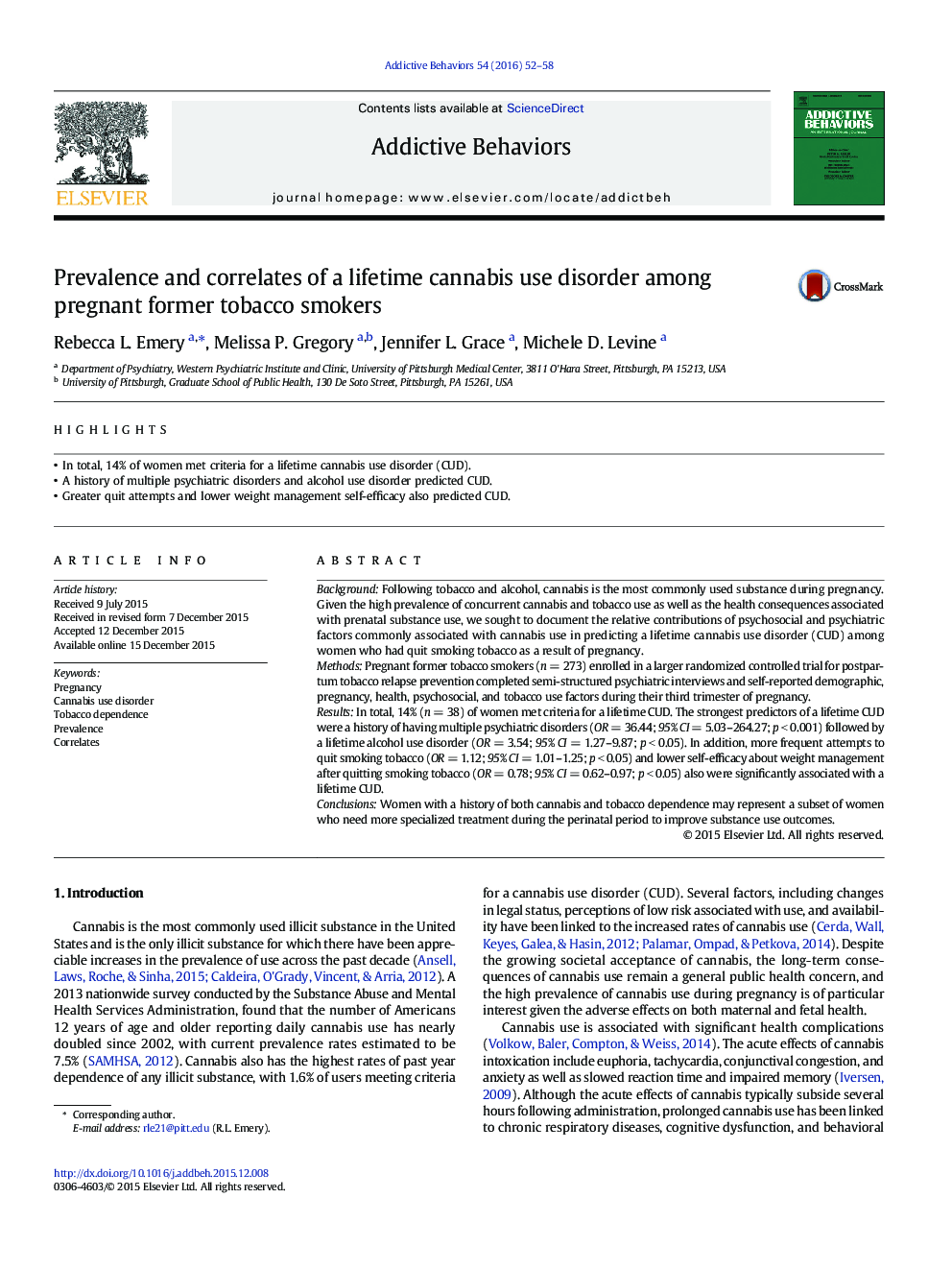| کد مقاله | کد نشریه | سال انتشار | مقاله انگلیسی | نسخه تمام متن |
|---|---|---|---|---|
| 898592 | 1472517 | 2016 | 7 صفحه PDF | دانلود رایگان |
• In total, 14% of women met criteria for a lifetime cannabis use disorder (CUD).
• A history of multiple psychiatric disorders and alcohol use disorder predicted CUD.
• Greater quit attempts and lower weight management self-efficacy also predicted CUD.
BackgroundFollowing tobacco and alcohol, cannabis is the most commonly used substance during pregnancy. Given the high prevalence of concurrent cannabis and tobacco use as well as the health consequences associated with prenatal substance use, we sought to document the relative contributions of psychosocial and psychiatric factors commonly associated with cannabis use in predicting a lifetime cannabis use disorder (CUD) among women who had quit smoking tobacco as a result of pregnancy.MethodsPregnant former tobacco smokers (n = 273) enrolled in a larger randomized controlled trial for postpartum tobacco relapse prevention completed semi-structured psychiatric interviews and self-reported demographic, pregnancy, health, psychosocial, and tobacco use factors during their third trimester of pregnancy.ResultsIn total, 14% (n = 38) of women met criteria for a lifetime CUD. The strongest predictors of a lifetime CUD were a history of having multiple psychiatric disorders (OR = 36.44; 95% CI = 5.03–264.27; p < 0.001) followed by a lifetime alcohol use disorder (OR = 3.54; 95% CI = 1.27–9.87; p < 0.05). In addition, more frequent attempts to quit smoking tobacco (OR = 1.12; 95% CI = 1.01–1.25; p < 0.05) and lower self-efficacy about weight management after quitting smoking tobacco (OR = 0.78; 95% CI = 0.62–0.97; p < 0.05) also were significantly associated with a lifetime CUD.ConclusionsWomen with a history of both cannabis and tobacco dependence may represent a subset of women who need more specialized treatment during the perinatal period to improve substance use outcomes.
Journal: Addictive Behaviors - Volume 54, March 2016, Pages 52–58
